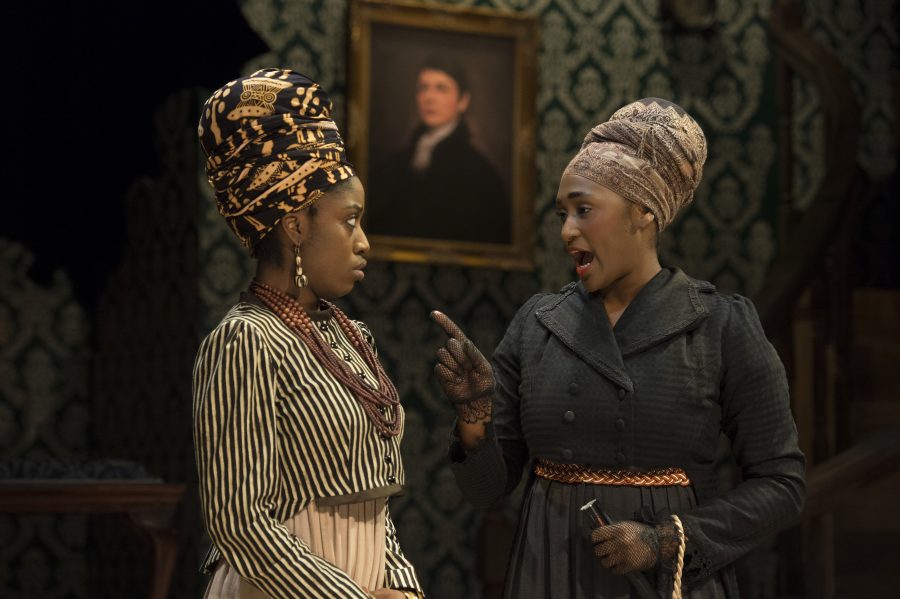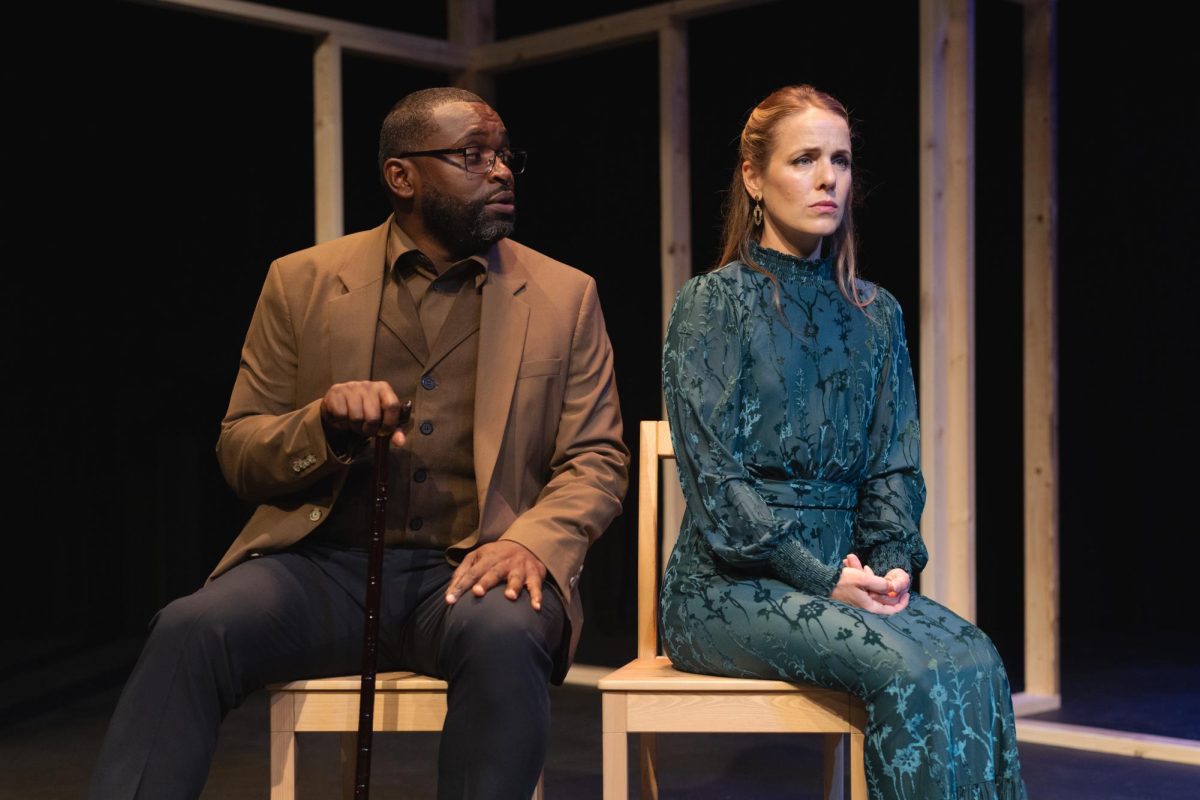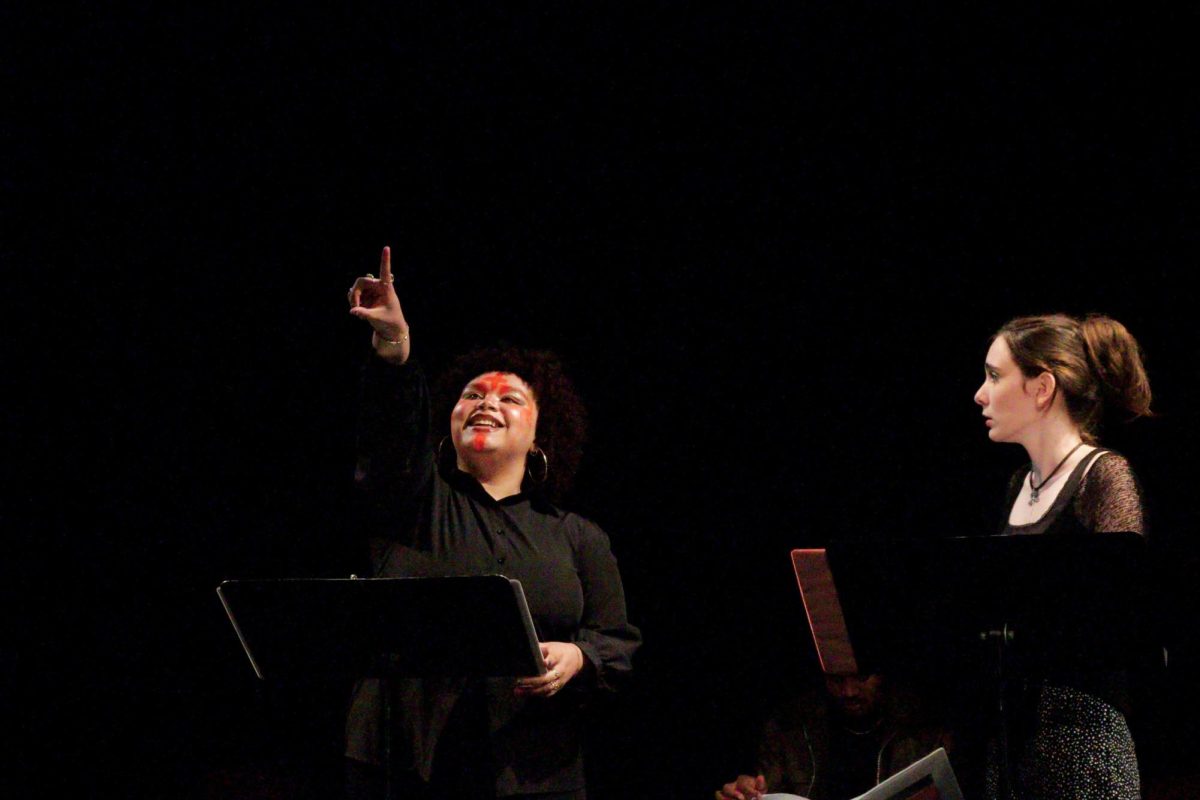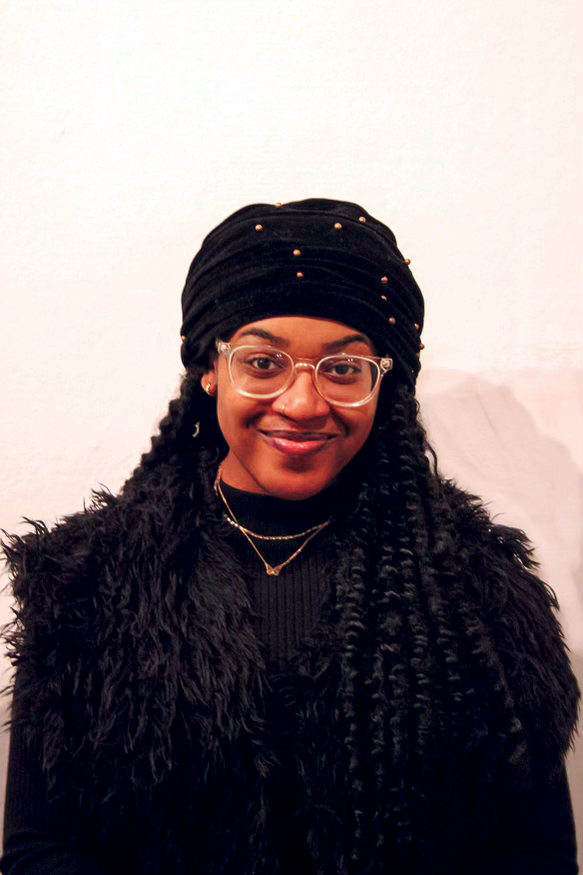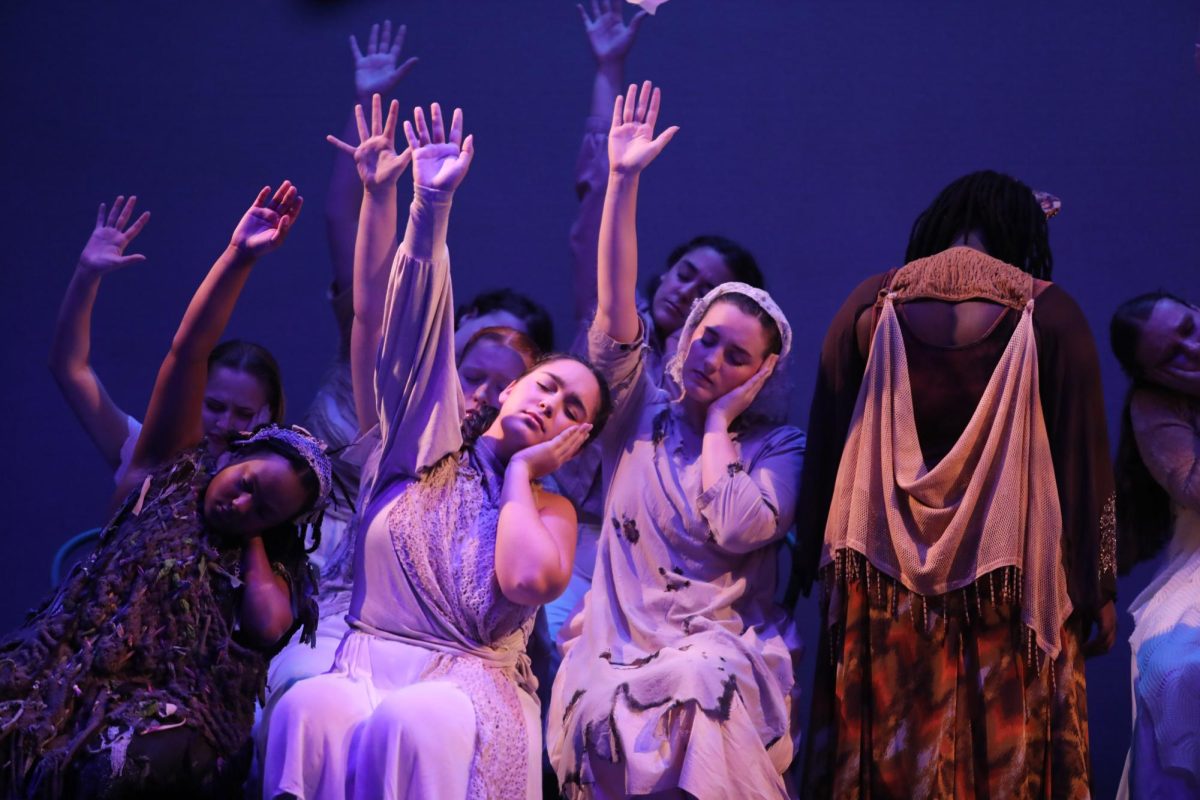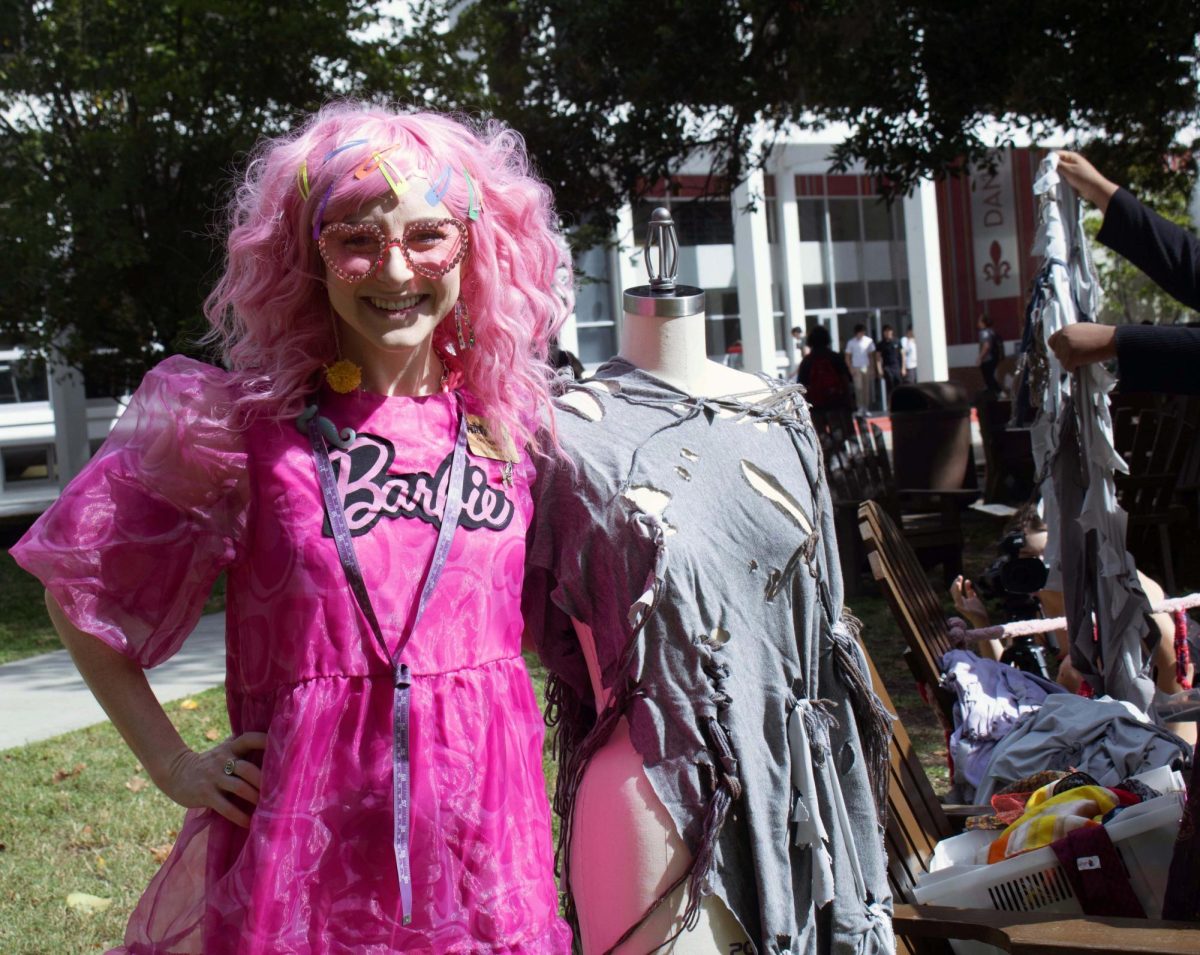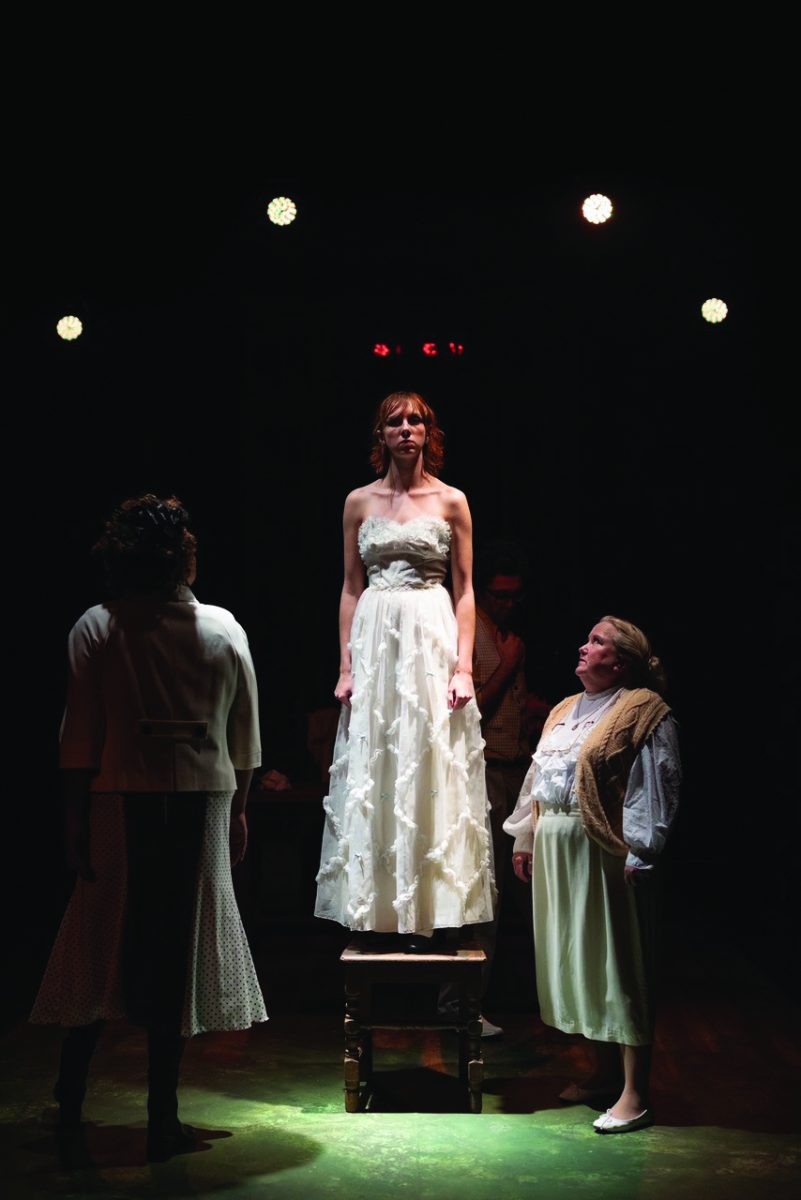This semester, Loyola’s theatre arts department put on two productions: Eugene O’Neill’s “Beyond the Horizon“ and “The House That Will Not Stand,” written by New Orleans native Marcus Gardley. Both productions evoked social justice themes, something Laura Hope, chairwoman of the department, said has become a criteria for her when selecting which plays the department will pursue.
After becoming chairwoman in January of this year, Hope said she made a promise to choose one classic play, one new play and one musical each year to educate students on different types of theatrical performances. In addition, Hope said she is devoted to picking productions that have one or more social justice components.
“I promised greater diversity so that the plays we do are a better reflection not only of the campus community, but of the city at large,” Hope said.
For this season, Hope looked to the College of Music and Fine Arts’ artistic theme — “The Creative American Spirit” — and chose American plays she felt reflected the that.
“Beyond the Horizon,” directed by guest artist Mark Routhier, was the first major production of the fall 2015 semester and dealt with a family struggling with the gloomy reality of the American Dream. Next semester, the theatre arts department will perform “The Spitfire Grill,” a musical based on the movie of the same name. Directed by theatre arts professor Patrick Gendusa, the play will focus on the American criminal justice system.
This season’s most recent production, “The House That Will Not Stand,” directed by Hope, chronicles a family of free women of color living in New Orleans during the early 1800s. The family struggles with the ramifications of the Louisiana Purchase and learns what it means to be both female and African American in 19th century America. Hope said she knew the play would send a powerful message.
“At the time I chose the play, I didn’t know what the rhetoric of this election would be. I didn’t know there would be so much misogynistic and racially charged language,” Hope said. “I think the theater is one of the few places where you see a different viewpoint being put out there and are asked to deal with someone’s humanity.”
Alana Walker, computer information systems freshman, said she recommended “The House That Will Not Stand” to all her friends after seeing the show.
“The play was so amazing, so empowering and had a sense of culture,” Walker said.
When choosing each semester’s plays, Hope said she also listens to the suggestions of other theatre arts faculty members and considers what types of shows will sell tickets.
Once the upcoming year’s season is announced in March each year, production schedules are made, and faculty members determine the campus location for each show. Following auditions, the rehearsal process begins. Hope said it usually lasts about a month. During that time, the theater department’s stagecraft classes, taught by Professor George Johnson, build the set.
With about 70 undergraduates in the theater department, Hope estimates 25-50 students work on each production. She said students outside of the theater program are welcome to audition for plays and help with technical aspects.
Talia Moore, musical theater freshman, was cast in “The House That Will Not Stand” and said a huge amount of work goes into making productions the best they can be. She said this show in particular took a lot of work because it incorporated acting, singing and dancing.
“I think this is the best play I could have done my first semester,” Moore said. “It’s a cast full of black women, and it’s empowering. It’s a sad story, but at the end of the day, it’s so much more than a play. It’s a message.”
Theatre freshman Kevin Agular had similar sentiments when it came to being cast in his first Loyola production, “Beyond the Horizon.”
“There is a sort of magic that comes to light in theater,” he said. “Being part of a great cast has been one of my most memorable experiences so far.”
According to the theatre department, students will collaborate and perform “The Spitfire Grill” next semester, which is set to take place during the weekends of March 24 and 30.
“I’m hoping that we can have a conversation with our audiences while also presenting high quality artistry,” Hope said.


